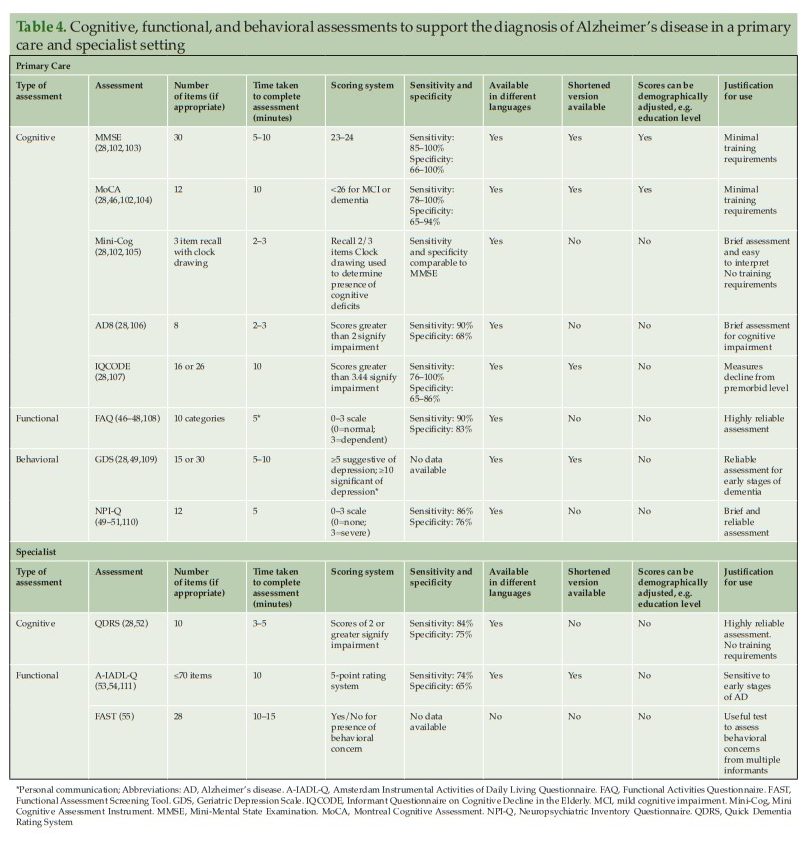In this post I link to instruments to support the “Cognitive, Functional, and Behavioral Assessments” to support the diagnosis of MCI and Alzheimer’s Disease from Table 4 of Diagnosis of Early Alzheimer’s Disease: Clinical Practice in 2021 [PubMed Abstract] [Full-Text HTML] [Full-Text PDF]. J Prev Alzheimers Dis. 2021;8(3):371-386. doi: 10.14283/jpad.2021.23.
The above resource has been cited by 42 articles in PubMed.
There are 111 similar articles in PubMed.
Here is Table 4 from the above resource:
All the links that follow are from resources in Table 4 above.
Primary Care
Type of assessment Assessment Number of items (if appropriate) Time taken to complete assessment (minutes) Scoring system Sensitivity and specificity Available in different languages Shortened version available Scores can be demographically adjusted, e.g. education level Justification for use Cognitive MMSE (28,102,103) 30 5–10 23–24 Sensitivity: 85–100% Specificity: 66–100% Yes Yes Yes Minimal training requirements
Cognitive MoCA (28,46,102,104) 12 10 <26 for MCI or dementia Sensitivity: 78–100% Specificity: 65–94% Yes Yes Yes Minimal training requirements
Cognitive Mini-Cog (28,102,105) 3 item recall with clock drawing 2–3 Recall 2/3 items Clock drawing used to determine presence of cognitive deficits Sensitivity and specificity comparable to MMSE Yes No No Brief assessment and easy to interpret No training requirements
Cognitive AD8 (28,106) 8 2–3 Scores greater than 2 signify impairment Sensitivity: 90% Specificity: 68% Yes No No Brief assessment for cognitive impairment
Functional FAQ (46^8,108) 10 categories 5* 0–3 scale (0=normal; 3=dependent) Sensitivity: 90% Specificity: 83% Yes No No Highly reliable assessment
Behavioral GDS (28,49,109) 15 or 30 5–10 ≥5 suggestive of depression; ≥10 significant of depression* No data available Yes Yes No Reliable assessment for early stages of dementia
Behavioral NPI-Q (49–51,110) 12 5 0-3 scale (0=none; 3=severe) Sensitivity: 86% Specificity: 76% Yes No No Brief and reliable assessment Specialist
Type of assessment Assessment Number of items (if appropriate) Time taken to complete assessment (minutes) Scoring system Sensitivity and specificity Available in different languages Shortened version available Scores can be demographically adjusted, e.g. education level Justification for use Cognitive QDRS (28,52) 10 3–5 Scores of 2 or greater signify impairment Sensitivity: 84% Specificity: 75% Yes No No Highly reliable assessment. No training requirements





